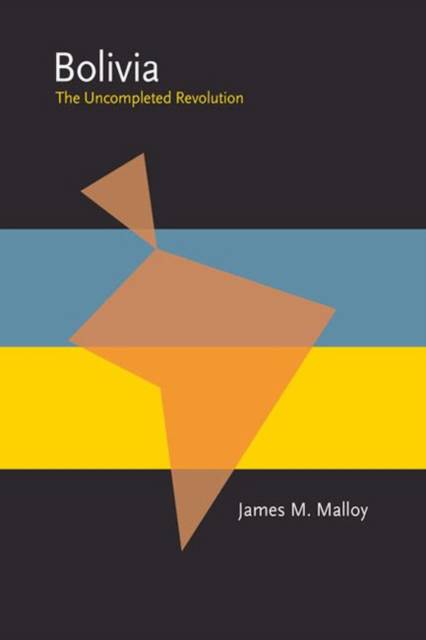
Bedankt voor het vertrouwen het afgelopen jaar! Om jou te bedanken bieden we GRATIS verzending (in België) aan op alles gedurende de hele maand januari.
- Afhalen na 1 uur in een winkel met voorraad
- In januari gratis thuislevering in België
- Ruim aanbod met 7 miljoen producten
Bedankt voor het vertrouwen het afgelopen jaar! Om jou te bedanken bieden we GRATIS verzending (in België) aan op alles gedurende de hele maand januari.
- Afhalen na 1 uur in een winkel met voorraad
- In januari gratis thuislevering in België
- Ruim aanbod met 7 miljoen producten
Zoeken
€ 99,45
+ 198 punten
Omschrijving
The first book-length analysis of the Bolivian revolution by an American political scientist explains the events of 1952 as a Latin American case study, and links the theme of the revolution with other contemporary insurrections in underdeveloped countries. Combining narrative excitement and scholarly analysis, the book pinpoints sources of weakness and stress in the Bolivian old order, with particular attention to the effects of uneven economic developments in the first two decades of the twentieth century. It then focuses on the stormy years after 1936 that led up to the insurrection of April 9-11, 1952. Finally, it examines attempts of the revolutionary government to promote economic development between 1952 and November 1964, when it was overthrown.
Specificaties
Betrokkenen
- Auteur(s):
- Uitgeverij:
Inhoud
- Aantal bladzijden:
- 406
- Taal:
- Engels
- Reeks:
- Reeksnummer:
- nr. 349
Eigenschappen
- Productcode (EAN):
- 9780822984238
- Verschijningsdatum:
- 15/10/1970
- Uitvoering:
- Paperback
- Formaat:
- Trade paperback (VS)
- Afmetingen:
- 152 mm x 229 mm
- Gewicht:
- 594 g

Alleen bij Standaard Boekhandel
+ 198 punten op je klantenkaart van Standaard Boekhandel
Beoordelingen
We publiceren alleen reviews die voldoen aan de voorwaarden voor reviews. Bekijk onze voorwaarden voor reviews.









